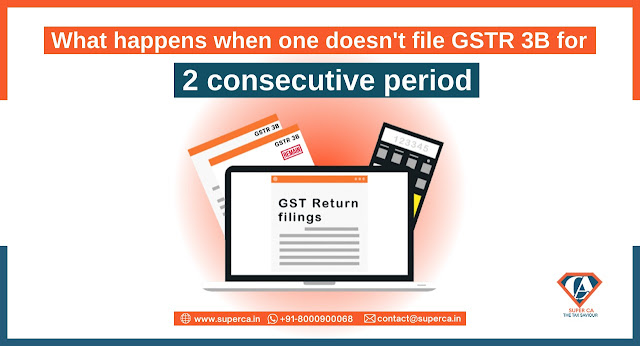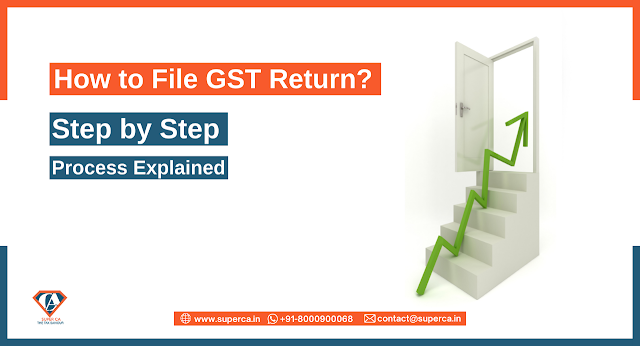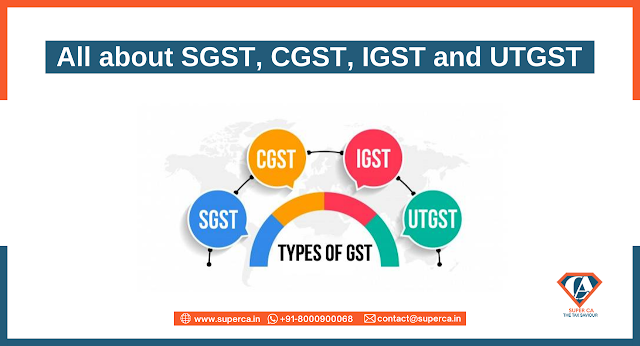What happens when one doesn't file GSTR 3B for 2 consecutive period?
GST return filing must be compulsorily done by all individuals having GST Registration irrespective of turnover or profit. Every regular taxpayer shall file monthly GST returns and dealers registered under Composition Scheme shall file quarterly GST returns. On the other hand, one return shall be filed by a non-resident taxable person every month.
GST return filing form comprises the details of outward and inward supplies that a registered taxpayer must file with the Indian tax authorities. Details that are submitted are the basis on which the tax authorities calculate your tax liability. A late fee and interest are imposed on the taxpayer if the GST return filing is not done.
There are various provisions prescribed under the GST Act for the non/late filers and it is different for every return. In this blog, we’ll look at the various consequences that will arise with not/late filing of GST return filing of GSTR 3B and their individual impacts. Let's start this with a short introduction to GSTR 3B.
About GSTR- 3B
Summary of details of inward and outward supplies is furnished by the registered taxpayers in GST return filing 3B. Taxpayers may file this monthly self-declaration/return with details about all outward supplies made, tax liability, input tax credit asserted, and payable amount of tax. Form GSTR-3B is a simplified summary return and the purpose of the return is for taxpayers to declare their summary GST liabilities for a particular tax period and discharge these liabilities. Details of ITC and sales details must be reconciled with GSTR-1 and GSTR-2B every tax period before filing GSTR-3B.
The Due date is as follows -
Monthly - 20th of every month from January 2021 onwards (For taxpayers having an aggregate turnover of more than Rs.5 crore in the previous FY)
Quarterly
- 22nd or 24th of the month next to the quarter (For taxpayers opted into the QRMP scheme.)
Consequences arising with not/late GST return filing
Late Fees u/s 47 of the CGST Act, 2017
Any registered person who fails to furnish GSTR 3B will face this consequence. There is a domino effect for not filing the GSTR 3B as the late fee will continuously increase until it hits the capping limit. The fee will automatically be added in the next month’s GSTR 3B and you can’t edit it or you can’t proceed to file the return until you pay the prescribed late fees.
Currently, the maximum late fees prescribed for non/late filing of GSTR 3B is as follows
|
Tax Liability |
Per Day |
Maximum |
||
|
UPTO 1.5
Crores |
Between 1.5
crores to 5 Crores |
5 Crores
& above |
||
|
Nil Liability |
Rs. 20 |
Rs. 500 |
||
|
Others |
Rs. 50 |
Rs. 2,000 |
Rs. 5,000 |
Rs. 10,000 |
Blocking of GSTR-1 filing facility
A new Rule 59(6) has been inserted which gives restrictions in filing GSTR – 1 if GSTR – 3B has not been filed. This restriction came into effect on 01st January 22
The rule states that any registered person shall not be allowed to furnish the details of outward supplies of goods or services or both u/s 37 in Form GSTR-1 if he has not furnished the return in Form GSTR-3B for preceding two months; a registered person, required to furnish a return for every quarter under the proviso to sub-section (1) of section 39, shall not be allowed to furnish the details of outward supplies of goods or services or both under section 37 in Form GSTR-1 or using the invoice furnishing facility if he has not furnished the return in Form GSTR-3B for preceding tax period.
Restriction of e-way bill generation (Rule 138E)
The system of e-way bill blocking was implemented from 2.12.19. E-way bill generation is blocked for individuals who have got their GST return filing done for the previous two consecutive months/quarters. Thus, if a taxpayer has not filed GSTR-3B for two or more consecutive months, then he/she will not be able to generate e-way bills for doing dispatching and receiving goods, thus dead stopping the process. Only when a taxpayer files GSTR-3B, the e-way bills will get unblocked on the next day.
Restriction of ITC of recipients
The payment of tax to the government by the supplier on supplies is required in order to claim the input tax credit. If GSTR 3B is not filed, then it may be assumed that the supplier is yet to pay taxes. However, it is subject to certain exceptions.
Final Words
In a nutshell, we suggest all the GST registered people must get their GST return filing on a monthly, quarterly, or annual basis, depending on the nature of the business within the due date to avoid unfavourable circumstances. Also, failing to file a return for a period of six months continuously will lead to the cancellation of his/her GST Registration. But before doing so, the tax authorities will initiate recovery proceedings; however, before such initiation, notices and reminders must be served.

Online GST Registration | Online GST Return Filing | Online Company Registration | Online Sole Proprietorship Registration




Comments
Post a Comment